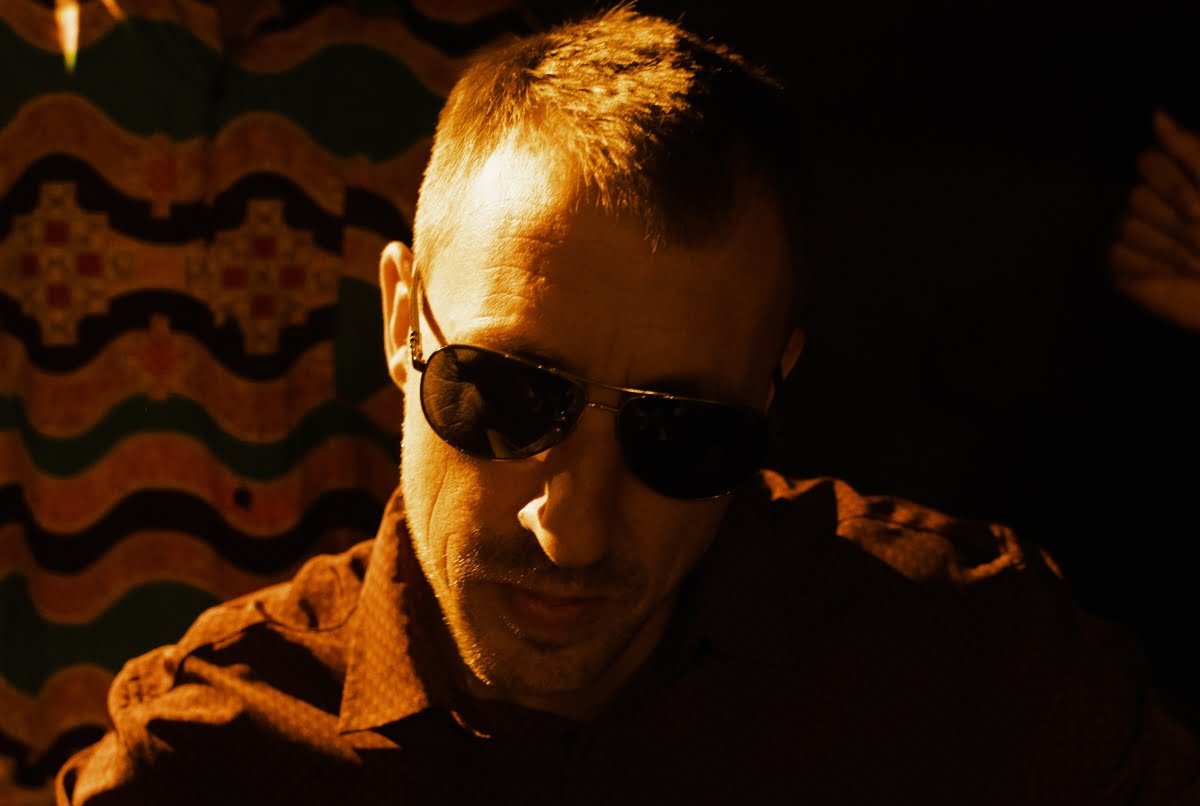As a producer, Prince Fatty is eclectic, working across the board; his collaborations read like a who’s who from the mid-90s to now. However, perhaps Prince Fatty is best known for his presence in the Jamaican diaspora music scene. Still churning records out now, the latest release Be Thankful For What You’ve Got featuring reggae singer Earl Sixteen is a beautiful prequel to those happy summer days to come.
We took the opportunity, with his Record Store Day release, to catch up with Prince Fatty.
Rhythm Passport: How did you get the name Prince Fatty? Was it given to you, or did you choose it? Were you following the likes of Prince Jazzbo?
Prince Fatty: It was a quick decision, as it all started with what I thought would be a one-off record for Stüssy Records called ‘Ninas Dance’ – a Jackie Mittoo-inspired instrumental organ work out. It was a limited edition, so I figured Prince Fatty would be too, but it didn’t work like that. The fat thing came from all the musicians always saying my sound was fat!
RP: Who inspired you musically, before you considered yourself a musician?
PF: My older brother gave me Jimi Hendrix’s Electric Ladyland when I was 8 years old, and that blew my mind, then Burning Spear at 13 years old, when I discovered dub and playing bass.
Did you have a patron who taught you the ropes?
PF: Yeah, many old sound engineers taught me how to record; not one in particular, but all combined gave me much knowledge. If I had to pick one, then Graham Dickson, who was the in-house engineer at the Hit Factory and was Gus Dudgeon’s engineer for many years.
Have you ever had a music nemesis/rivalry?
PF: Sure, but usually it’s imaginary and thus virtual. I have a make-believe beef with Quincy Jones, because he always had a bigger budget than me! Competition is healthy in my opinion, so that’s every soundsystem show we do. Dub-wise, touring with Mad Professor was the closest I felt to a rivalry vibe, but it was friendly after all. The goal is always to give people a good show.
Of all your collaborations, is there one that you consider as surprising to your fans?
PF: The Last Poets album Understand What Black Is took people by surprise, as on paper you wouldn’t imagine the combination geographically possible between Dub Judah, Horseman, the Nostalgia, 77 jazz musicians and myself, with The Last Poets via the Bronx. Through the universe and its random chaos theory, it happened very swiftly and smoothly. We are now working on a follow-up.
You’ve worked with literally everyone in the contemporary dub/reggae scene, from Mungos Hi-Fi, Hollie Cook, Gentleman’s Dub Club and the greats like The Last Poets and Dele Sosimi. Is there an act that you have yet to work with that you aspire too?
PF: A new singer called Shniece McMenamin is my latest discovery, and we have been doing much work together in preparation for her debut release. A real soul voice for the 21st century. My collaboration with Monkey Jhayam from Brazil was big for me. Living in Sao Paolo last year was inspiring, and I recorded a lot. Brazil is special, and it felt like a re-birth.
You have a new release just out for Record Store Day – Be Thankful for What You’ve Got. It’s setting the summer scene for sure! Are you performing anywhere this summer?
PF: Yes, we are, but this summer we are in the studio a lot, so I kept the shows to a minimum.
What equipment did you start producing and learning to dub on?
PF: I learned on big analog mixers and tape machines via the traditional tape op/assistant engineer when I left school at 17. I was there for the start of the digital domination that followed. I resisted as much as possible, and have always believed in recording live and all together to get a vibe; looking for good performance and sound in combination. Art is often not a consideration for sound engineers, as they tend to be just technical. I try and find a mix between art and science. I am lucky, I have worked in some of the best studios in the world, like Townhouse, Olympic and the old Air Studios on Oxford Street.
RP: We are big believers that the music listened to by your parents shapes your own personal musical taste. What kind of music did you listen to growing up? Is it the same kind of music you produce?
PF: I grew up in Italy, so they were 20 years behind everybody else. They were still listening to The Doors, Jimi Hendrix, Bob Marley, big Italian love ballads and plenty of disco. My mother loved Boney M, and my father, being Italian, preferred Latin sounds like cumbia, salsa and samba. I liked it all. I started bootlegging at a young age, selling cassettes at school.
RP: Do you have a favourite music route? A soft spot for production, so to speak?
PF: Reggae and soul are my natural reference points. I like musicians to sound like musicians and machines to sound like machines.
Can you give us five killer albums you listen to on repeat?
PF: Mingus Mingus Mingus Mingus Mingus by Charles Mingus; the dub album of The Same Song album by Israel Vibration mixed by Fatman; Jorge Ben’s Africa; Dub Judah’s Babylon is a Trap; and Electric Ladyland by Jimi Hendrix.
RP: What’s next for Prince Fatty?
PF: I plan to record more in Latin America, and I am planning the next follow up for The Last Poets, which will have an Afro-feel, as I am planning to use Tony Allen (Fela Kuti’s drummer) for the beats. The Bronx meets Lagos, Nigeria in a political-poetry style. Stay tuned.


